Похожие презентации:
British and American Studies
1.
British and American StudiesENGLISH
LANGUAGE-AND-CULTURE STUDIES
2.
Origins of the English languageand Anglo-Saxon culture
(in brief)
3.
Celts >Romans >
Anglo-Saxons >
Vikings >
Normans
4.
The CeltsThe original inhabitants of the British Isles before
the arrival of the Romans were Celtic-speaking
tribes.
Celtic itself was one of the many offshoots of the
earlier Indo-European language.
The Roman invasion – prepared by Julius Caesar’s
short-lived military expeditions of 55-54 BC but
only beginning in earnest when the legions of
Emperor Claudius landed in 43 AD – subdued
large areas of Britain. Together with their laws,
customs and roads, the conquerors imported the
imperial language of Latin.
5.
The Celtic legacy (tiny, though)London, the Thames, the Avon
Torquay [tɔːˈkiː], Glastonbury Tor
(tor – hill, high rock)
Salcombe, Cwmbran (-combe, cwm
– a hollow or valley)
NB: landscape ―>no adequate
vocabulary to describe hills &
valleys
6.
Celtic Languages• Goidelic (Gaelic): Irish, Scottish, Manx
• Brittonic: Welsh, Cornish, Breton
Cf.:
whisky (Irish and American – whiskey) <uisgebeatha (Gaelic) = water + life
Lat. acqua vitae
Modern Swedish & Danish – akvavit
NB: Shakespeare, R&J
7.
The most surprising of all Celtic relicsare two terms:
slogan (cf. the world of advertisers
and spin-doctors) (a Gaelic war-cry:
sluagh (army/host) + gairm (cry))
car (<OC – karros, ‘cart’, Lat. carra,
Norman French carre)
8.
Anthony Hopkinsin full Sir Philip Anthony
Hopkins
A Welsh stage and film actor of
burning intensity, often seen at
his best when playing pathetic
misfits or characters on the
fringes of insanity.
Born on December 31, 1937, in
Margam, Wales, to Muriel
Anne (Yeats) and Richard
Arthur Hopkins, a baker. His
parents were both of half
Welsh and half English
descent.
9.
Richard Burton (bornNovember 10, 1925,
Pontrhydyfen, Wales—died
August 5, 1984, Geneva,
Switzerland) Welsh stage and
motion-picture actor noted
for his portrayals of highly
intelligent and articulate men
who were world-weary, cynical,
or self-destructive.
Noted for his mellifluous
baritone voice, Burton
established himself as a
formidable Shakespearean
actor in the 1950s, and gave a
memorable performance
as Hamlet in 1964.
10.
Anglo-Saxon England11.
• The island of Britainconquered by Rome during
the reign of Claudius, shared
fully in the life of the Roman
Empire during the first four
centuries of the Christian era.
• Together with their laws,
customs and roads, the
Roman conquerors imported
the imperial language of
Latin. Thus the native Britons,
a gentle Celtic people, had
become thoroughly
romanized.
12.
Valens, Eastern Roman emperorfrom 364 to 378.
In 376 the Visigoths, defeated and
pursued by the Huns, were allowed
by Valens’ generals to settle in
Roman territory south of the
Danube. Soon the tribe rebelled
against the Romans and engaged the
Emperor in the great Battle of
Adrianople (modern Edirne, Tur.) on
Aug. 9, 378. The poor tactics
employed by Valens led to the total
defeat of his army, and the Emperor
himself was numbered among the
fallen.
13.
The savage Picts from Scotland continuedto harass the north.
Teutonic tribes from Scandinavia and
modern-day Belgium – the Angles,
Saxons, and Jutes – stepped up their
assaults, attacking in a hit-and-run
fashion.
Their goal was plunder, and at first their
invasions led to no permanent
settlements.
As more Germans arrived, however, they
took over the best lands and humbled the
Britons.
14. Latin Legacy
-chester (from Lat. castra –camp)
(Winchester, Doncaster)
15. Latin and Money
16.
Elizabeth II DG REG FD• DG – Dei gratia – by the grace of God
• REG – Regina (Queen)
• FD – Fidei Defensor – Defender of
the Faith
17.
Magna CartaEnglish Great Charter,
charter of English liberties
https://www.youtube.com/watch?v=7xo4tUMdAMw&ab_channel=TheBritishLibrary
18.
19.
20.
E PLURIBUS UNUM – One out of manyAnnuit cœptis ä-nü-it-kȯip-tēs – [God]
“favors (or “has favored”) [our]
undertakings (cf. “with God’s favor”)
NB: a caption above the Eye of Providence,
the standard translations are “Providence
favors our undertakings” and “Providence
has favored our undertakings”.
Novus ordo seclorum – New order of the
ages.
21.
Cf. also:The term Capitol derives from the
temple to Jupiter on Rome’s
Capitoline Hill, just as the US
Senate borrows its name from its
Roman archetype.
22.
The Anglo-Saxons500–1066
The various groups from the northwest fringes of
Europe who reached Britain in the centuries
following the departure of the Romans made the
greatest contribution of all to the English language.
Indeed, they could be said to have created it. They
provided the bedrock of words which, with some
relatively small modifications, the English still use
most frequently today. They are the most
significant visitors – and later inhabitants – in
English history.
Germanic languages
Contemptuous attitude towards Celtic culture (cf. AS nobility’s choice of Celtic names)
The new arrivals, feeling themselves not superior but inferior to a people who had been
shaped and polished by nearly 4 centuries of Roman rule, wanted nothing to do with the
Romano-Celtic heritage.
The result – (Old) English
23.
NB:There was resistance to the AngloSaxon newcomers – the legends of
King Arthur date from this time – but
less than 100 years after the departure
of the Romans, the new ‘English’ had
control of a great triangle of land
consisting of the southeast of England
and East Anglia and parts of
Northumberland.
24.
The Heptarchy of Anglo-Saxon BritainVII–VIIIth centuries
• the Jutish kingdom of Kent
• the Saxon kingdoms of :
• East Saxons (Essex)
• South Saxons (Sussex)
• West Saxons (Wessex)
• the kingdoms of the Angles, Mercians, and
Northumbrians.
NB: The people thought of themselves in tribal
rather than geographical terms.
25.
The Anglo-Saxon Invasionsand the Heptarchy
https://www.youtube.com/watch?v=3aE2P
k04Axk&ab_channel=SHELUEL
26.
27.
Viking invasions:conquest and
colonisation
28.
King Alfred the Great, a national icon,the founder of the kingdom and nation
29.
King Alfred the Great*Defeated the Danes in 878
Consolidated control over the south and southwest
The first English ruler to employ language
for political ends, as a way of cementing
the union of his realm.
Translation into Anglo-Saxon was required:
“Our ancestors loved wisdom, and through it they
created wealth and left it to us. Here we may see
their footprints, but we cannot follow their tracks
after them. Therefore it seems better to me that
we translate certain books, which are most
needful for all men to know, into that language
that we all can understand.”
30.
• Ecclesiastical History of the EnglishPeople by Bede the Venerable
(Беда Достопочтенный. Церковная
история народа англов)
• Anglo-Saxon Chronicle – a kind of diarycum-history of events started in 55 BC ,
with the arrival in Britain of Julius Caesar
and continued well beyond another more
significant invasion, that of William the
Conqueror in 1066.
* the only English monarch with such a title
31.
899 Death of King Alfred920 Edward, son of Alfred , retakes northern
regions previously under Viking rule. Sixty years of
English control of England ensues
991 Battle of Maldon (Essex), the English are
defeated by the Danes. Marks the start of the a
period of renewed Viking ascendancy and English
decline
1016 accession of the Danish king Cnut (Canute)
to the English throne. England becomes part of the
Danish Empire
32.
* The Church of England or Anglican ChurchAnglican – from medieval Latin anglicanus <
Angles
Cf:
Non Anglii, sed angeli
(Not Angles, but angels) – Pope Gregory, on
being told that boys about to be sold as
slaves in the Roman marketplace were
Angles, an event that supposedly led to the
conversion of England to Christianity (597)
33.
The Viking EffectThe arrival of people from the Scandinavian
countries
• a series of raids
• a combination of conquest and
colonization
2 waves of Viking settlement and triumph:
• their effective control of half the country
(k.a. the Danelaw)
• the accession of the Danish king Cnut
(Canute) to the English throne in 1016.
34.
https://www.youtube.com/watch?v=_31KKfCtIFI&ab_channel=Southam
ptonCulturalServicesLearning
https://www.youtube.com/watch?v=
Q9OC7m9AWKo&ab_channel=Numi
stacker
35.
Technological advance andgreater global economic
integration are simply
realities. To oppose them is
to oppose the tide, which
worked out poorly for King
Canute (I.H.T., Oct. 13, 97).
36.
Technological advance andgreater global economic
integration are simply
realities. To oppose them is
to oppose the tide, which
worked out poorly for King
Canute (I.H.T., Oct. 13, 97).
Технический прогресс и
расширение глобальной
экономической
интеграции – это просто
реальность.
Сопротивляться ей – все
равно, что пытаться
остановить волну, которая
не подчинилась даже
Кнуду Великому.
(ср.: сопротивляться этому
бессмысленно)
37.
Churchill did not causeSoviet domination of Eastern
Europe: that was
unstoppable once the
German army was crushed.
Churchill was not larger than
the historical forces he
confronted. The sea was not
Canute’s fault. (Sunday
telegraph, Apr. 29, 2001)
38.
Churchill did not causeSoviet domination of Eastern
Europe: that was
unstoppable once the
German army was crushed.
Churchill was not larger than
the historical forces he
confronted. The sea was not
Canute’s fault. (Sunday
telegraph, Apr. 29, 2001)
Черчилля нельзя винить в
том, что в Восточной
Европе установилось
господство СССР: после
разгрома немецкой армии
это было неизбежно.
История была сильнее его.
*Нет вины Кнуда в том, что
на море волны.
39.
The Viking impact was felt most strongly inthe Northeast of England, where even
today there are signs of their presence in
place names and dialect terms.
The contribution of Scandinavian words to
general English was also considerable.
40.
Cf.:“My earliest acquaintance with history was
thus, in a form issuing from my mother’s
lips, inseparable from her other bedtime
make-believe: how Alfred burnt the cakes,
how Canute commanded the waves, how
King Charles* hid in an oak tree – as if
history were a pleasing invention.”
G. Swift, The Waterland,
About the Story-Telling Animal
41. King Alfred’s cakes
https://freedomtoteach.collins.co.uk/king-alfreds-cakeslegend-or-fact/42. * CHARLES II AND THE ROYAL OAK
• When Charles I was executed in 1649, during the English Civil Wars,the country was without a monarch for the first and only time in its
history. It was only a matter of time until his son Charles attempted
to regain his father’s throne. In 1650–51, he came out of hiding and
launched his first attack, but the prince was defeated and forced to
flee once more.
• Discover how the future king hid from Parliamentarian forces at
Boscobel House in Shropshire during his escape, giving English
history one of its greatest adventure stories, and several hundred
pubs a name, in the process.
https://www.english-heritage.org.uk/visit/places/boscobel-houseand-the-royal-oak/history/charles-ii-and-the-royal-oak/
43.
The Viking legacyOld Norse
• skin, skull, skill, egg, husband, sister
skyrta > shirt, skirt
steorfan > starve, die
• clearer distinctions between pronouns
• -s ending in 3d person sing. (talks, sings)
replacing AS -eth (cf.: Shakespeare uses once
singeth but otherwise he writes sings)
NB: Beowulf as a fusion of Saxon and Viking
cultures
44.
Beowulf (dated to the 8th century)I, you, she;
a, the;
and; from, with, when;
to have, to be;
ship, sheep, field, earth, wood, work
45. Useful links
The Norman Conquest – Timelines.tv History of Britainhttps://www.youtube.com/watch?v=BEUxPJd7Yo&abchannel=timelinesTV
7.39 min
William the Conqueror
https://www.youtube.com/watch?v=JUguyO62Ts&abchannel=PotionPictures
1.39 min
https://www.youtube.com/watch?v=BEU_
xPJd7Yo&ab_channel=timelinesTV (7.34)
https://www.youtube.com/watch?v=d4eBpkP2ilU&ab_channel=RealCrusad
esHistory 20+
https://www.youtube.com/watch?v=Ocg_Z-m6YHw 10.20.
46.
William the Conqueror (1066–1087)• preserved the AS institution of sheriffs;
• retained another AS device, the writ
(предписание, указ), the brief
administrative order, written in the
vernacular (AS);
• introduced into England a major
innovation, the Norman inquest >
the resulting record, called Doomsday
Book (cf. Domesday B.)
47.
In the words of a contemporary chronicler:He sent his men over all England into every shire
and had them find out how many hundred hides
there were in the shire, or what land and cattle the
king himself had, or what dues he ought to have in
12 months from the shire. Also… what or how much
everybody had, who was occupying land in
England, in land or cattle, and how much money it
was worth. So very narrowly did he have it
investigated, that there was no single hide nor yard
of land, nor indeed…one ox nor one cow nor one
pig was there left out, and not put down in his
record: and all these records were brought to him
afterwards.
48.
The Norman Conquest:Language Consequences
profound impact on English life
the benefit of the English language
• new words and phrases were added in
profusion to the existing stock
• a simplification in linguistic structures
• a general reduction of inflections
The gains for OE and Norman French
speakers were mutual, but by the time the
process was complete there were no longer
two languages.
49.
• government, govern, administer, crown,state, empire, realm, reign, royal,
authority, sovereign, majesty, tyrant,
usurp, oppress, court, council,
parliament, assembly, statute, treaty,
alliance, record, repeal, adjourn, tax,
subsidy, revenue, traitor, treason, exile,
public, liberty
50.
• chancellor, treasurer, chamberlain, marshal,governor, councillor, minister, viscount, mayor,
constable, coroner;
• except for the words king and queen, lord, lady,
and earl, most designations of rank are French:
baron, nobility, prince, princess, duke, duchess,
count, countess, marquis, squire, page;
• titles of respect: sir, madam, mistress.
• words relating to the economic organisation of
society: manor, homage, vassal, peasant, slave,
servant
51.
In monasteries and religious houses French was for a long time the usuallanguage. Cf.:
• religion, theology, sermon, homily, sacrament, baptism,
communion, confession, prayer, lesson, passion, psalmody;
• indications of rank or class: clergy, clerk, prelate, cardinal, hermit,
dean, pastor, vicar, abbess, novice, friar, hermit;
• the names of objects associated with the service: crucifix, incense,
image, chapter, abbey, convent, priory, hermitage, cloister,
sanctuary;
• words expressing such fundamental religious or theological concepts:
creator, saviour, trinity, virgin, saint, miracle, mystery, faith,
heresy, reverence, remission, devotion, sacrilege, temptation,
penitence, redemption, salvation, immortality, piety, sanctity,
charity, mercy, pity, obedience;
• adjectives: solemn, divine, reverend, devout and verbs such
as preach, pray, chant, confess, adore, convert, and sacrifice
52.
The Norman Conquest ―>The English Conquest
the reverse conquest
– the Normans ended up being
absorbed by the people they had
conquered just as they ended
speaking English (although with a
multitude of French additions).
53.
1399–150954.
• Wars of the Roses >Tudors >Henry VIII > The Protestant
Reformation
• Empire and Sea Power
55.
• Henry IV (1399–1413)NB: Black Death
• Henry V (1413–1422) gained chivalric
prestige for his military exploits in France,
he was totally dependent on the feudal
magnates who controlled the royal council
and Parliament.
• Henry VI (1422–1461)
56.
• 1455–1471 – the Wars of the RosesThe Wars earned its flowery name because
the white rose was the badge of the Yorks,
and the red rose was the badge of the
Lancastrians.
***
• Richard III dies in battle
• Henry VII marries Elizabeth of York and
thus ends the Wars of the Roses
• The rise of the Tudor dynasty
57. * Richard III
[Usually presented as] the murderer, like King Herod, ofinnocent “babes,” a betrayer like Judas Iscariot, a tyrant,
and a committer of incest.
He possessed many qualities expected of a medieval king:
courage, competence as a general and administrator,
generosity, an interest in chivalry, and conventional piety.
Effective kingship required his charisma, eloquence,
persuasiveness, egotism, self-interest, and ruthlessness.
NB: The Life and Death of King Richard III by
W. Shakespeare
58.
Edward IV (1461–1483)• began establishing domestic tranquility;
• succeeded in defeating the Lancastrian
forces;
• after 1471 began to reconstruct the
monarchy and consolidate royal power
Edward, his brother Richard III (1483–
1485), and Henry VII of the Welsh House of
Tudor worked to restore royal prestige, to
crush the power of the nobility, and to
establish order and law at the local level.
59.
The royal council handled any business the kingput before it:
• executive, legislative, judicial;
• conducted negotiations with foreign
governments;
• secured international recognition of the Tudor
dynasty through the marriage in 1501 of Henry
VII’s eldest son Arthur to Catherine of Aragon;
• prepared laws for parliamentary ratification;
• dealt with real or potential aristocratic threats
(The Court of Star Chamber )
60.
• no standing army or professional civil servicebureaucracy;
• unpaid local officials, the justices of the peace, the
influential landowners in the shires handling all the work
of local government. They
• apprehended and punished criminals, enforced
parliamentary statutes, supervised conditions of service,
fixed wages and prices, maintained proper standards of
weights and measures, and even checked up on moral
behavior.
• The Tudors won the support of the influential uppermiddle class because the crown linked government
policy with their interests.
61.
Henry VII• rebuilt the monarchy;
• encouraged the cloth industry;
• built up the English merchant marine;
• English exports of wool and the royal export tax on that
wool steadily increased;
• led an invasion from Ireland;
• secured peace with Scotland through the marriage of
his daughter Margaret to the Scottish king.
1509
• the country at peace both domestically and
internationally
• a substantially augmented treasury
• the dignity and role of the royal majesty much
enhanced.
62.
THE GROWTHOF THE
PROTESTANT
REFORMATION
63.
Please, watch the video (Encyclopaedia Britannica)https://www.britannica.com/event/Reformation
64. Martin Luther (1483–1546)
65. John Calvin (1509–1564)
66.
The absolute sovereignty and omnipotence of Godand the total weakness of humanity
• Predestination we call the eternal decree of
God, by which he has determined what he would
have become of every individual of mankind. For
they are not all created with a similar destiny;
but eternal life is foreordained for some, and
eternal damnation for others. …
• For the will of God is the highest justice; so that
what he wills must be considered just, for this
very reason, because he wills it.
67.
Calvin as the model for:• the Presbyterian church in
Scotland
• the Huguenot church in France
• the Puritan church in England
and New England
68. John Calvin’s theology
Calvinism emphasized hard work, sobriety, thrift,competition and postponement of pleasure, and
tended to link sin with weakness and moral
corruption.
These attitudes fit in precisely with the economic
approaches and practices of many (successful)
businessmen and farmers. These values have
frequently been called the “Protestant”, “middle
class”, or “capitalist ethic”.
69. The Calvinist ethic of the «calling»
• Good works are a «sign» of election.• Hard work, well done, was pleasing to
God.
This doctrine encouraged an aggressive,
vigorous activism.
NB: Calvinism became the compelling force
in international Protestantism
70.
Calvin’s humanism influenced his thought in two other basic ways. Forone, he shared with earlier Renaissance humanists an essentially
biblical conception of the human personality, comprehending it
not as a hierarchy of faculties ruled by reason but as a mysterious unity
in which what is primary is not what is highest but what is central: the
heart. This conception assigned more importance to will and feelings
than to the intellect, and it also gave new dignity to the body. For
this reason Calvin rejected the ascetic disregard of the body’s needs that
was often prominent in medieval spirituality. Implicit in this particular
rejection of the traditional hierarchy of faculties in the personality,
however, was a radical rejection of the traditional belief that
hierarchy was the basis of all order. For Calvin, instead, the only
foundation for order in human affairs was utility. Among its
other consequences this position undermined the traditional
one subordinating women to men. Calvin believed that, for
practical reasons, it may be necessary for some to command and others
to obey, but it could no longer be argued that women must
naturally be subordinated to men. This helps to explain the
rejection in Geneva of the double standard in sexual morality.
71. THE ENGLISH REFORMATION
NB: John Wycliffe (1320s–1384), the precursor of theProtestant Reformation, the morning star of the English R.
Translation of Scripture into English
by unlicensed laity was
a crime punishable
by charges of heresy.
The Council of Constance
declared Wycliffe a heretic on 4 May 1415,
and banned his writings, effectively both
excommunicating him retroactively
and making him an early
forerunner of Protestantism.
The Council decreed that Wycliffe's works
should be burned and his bodily remains
removed from consecrated ground.
72.
William Tyndale (ca 1494–1536)1524 – visited Luther at Wittenberg,
1525 – at Antwerp
began printing an English translation
of the New Testament.
*From Antwerp, merchants carried
the New Testament into England,
where it was distributed by Lollards.
1535 – seized at Antwerp,
1536 – tried on a charge
of heresy
and condemned
to be burned to death.
73. Lord! Open the King of England's eyes!
74. Henry VIII (1491–1547)
• 1533• The Act in Restraint of Appeals
• 1534
• The Act for the Submission
of the Clergy
• 1534
• The Supremacy Act
75.
• The Act in Restraint of Appeals (1533):Where, by divers sundry old authentic histories and
chronicles, it is manifestly declared and expressed that this
realm of England is an empire,... governed by one
supreme head and king having the dignity and royal
estate of the imperial crown of the same (he being also
institute and furnished by the goodness and sufferance of
Almighty God with plenary whole, and entire power,...
to render and yield justice and final determination to all
manner of folk residents or subjects within this his realm.
• The Act for the Submission of the Clergy (1534) required
churchmen to submit to the king.
• The Supremacy Act of 1534 declared the king the supreme
head of the Church of England.
76.
• EDWARD VI (1547–1553)• MARY TUDOR (1553–1558)
• QUEEN ELIZABETH I (1558–1603)
77.
Please, watch the videosHenry VIII
https://www.youtube.com/watch?v=vGi
2TYAQfXE
Mary Tudor
https://www.youtube.com/watch?v=LS27NuxqU8
Elizabeth I
https://www.youtube.com/watch?v=dfg
eLdXA87I&ab_channel=SimpleHistory
78.
79.
QUEEN ELIZABETH I (1558–1603)https://www.britannica.com/biography/Elizabeth-I/Accession
The first weeks of her reign were not entirely given over to
symbolic gestures and public ceremonial. The queen began
at once to form her government and issue proclamations.
She reduced the size of the Privy Council, in part to purge
some of its Catholic members and in part to make it more
efficient as an advisory body; she began a restructuring of
the enormous royal household; she carefully balanced the
need for substantial administrative and
judicial continuity with the desire for change; and she
assembled a core of experienced and trustworthy advisers.
[Britannica]
80.
QUEEN ELIZABETH I (1558–1603)the decisive defeat of the Invincible Armada
• made England a world-class power and
introduced effective long-range weapons
into naval warfare for the first time
• strong English national consciousness
Cf. W. Shakespeare
81. George Gower 1588 The Armada Portrait of Elizabeth I of England
George Gower1588
The Armada Portrait of Elizabeth I of England
82.
83.
This royal throne of kings, this scepter'd isle,This earth of majesty, this seat of Mars,
This other Eden, demi-paradise,
This fortress built by Nature for herself
Against infection and the hand of war,
This happy breed of men, this little world,
This precious stone set in the silver sea,
Which serves it in the office of a wall,
Or as a moat defensive to a house,
Against the envy of less happier lands,
This blessed plot, this earth, this realm, this
England…
W. Shakespeare, Richard II
84.
…царственный сей остров,Страна величия, обитель Марса,
Трон королевский, сей второй Эдем,
Противу зол и ужасов войны
Самой природой сложенная крепость,
Счастливейшего племени отчизна,
Сей мир особый, дивный сей алмаз
В серебряной оправе океана,
Который, словно замковой стеной
Иль рвом защитным ограждает остров
От зависти не столь счастливых стран;
Что Англия, священная земля…
Пер. М. Донского
85.
The defeat of the Spanish Armada was a redletter day in American history. It dampenedthe fighting spirit of Spain and helped
ensure England’s naval dominance in the
North Atlantic. It started England well on
the way to becoming master of the seas – a
fact of enormous importance to the
American people.
86.
The English were seized with restlessness,with thirst for adventure, and with curiosity
for the unknown. Everywhere there
blossomed a new spirit of self-confidence, of
vibrant patriotism, and of boundless faith in
the future of the English nation.
87.
When England and Spain finally signed atreaty of peace in 1604, the English people
were poised to plunge head-long into the
planting of their own colonial empire in the
New World.
(Bailey, Kennedy, 1991, 14)
88.
Q. Elizabeth I’s reignthe most splendid age in the history
of English literature
• Sir Philip Sydney
• Edmund Spenser
• Roger Ascham
• Richard Hooker
• Christopher Marlowe
• William Shakespeare
• flowering of poetry
(sonnets, Spenserian stanza, blank verse)
• a golden age of drama
89.
Elizabeth I (the Virgin Queen)Although accused of being vain, fickle,
prejudiced, and miserly, she proved to be
an unusually successful ruler.
90. Queen Elizabeth I and Foreign Languages
* Queen Elizabeth I supposedly spoke at leastseven languages, including English, French,
Italian, Greek, German, Spanish and Welsh.
** Queen Elizabeth 1 spoke 11 languages to varying
levels. Queen Elizabeth 1 spoke English, French,
Flemish, Italian, Spanish, Latin, Greek, Welsh,
Cornish, Irish and Scottish.
*** Elizabeth I could read and write fluently in at
least six languages.
NB: Classical Greek and Hebrew
91.
Elizabeth had an exceptional intellect and had always lovedlearning for its own sake. From the age of five, she had been taught a
range of languages, including Latin and Greek, and she loved to
make translations of classical authors. It was clearly an abiding
passion because the translation shown here was undertaken by the
queen shortly after her sixtieth birthday. There is no evidence that it
was intended for circulation, but rather for the pleasure that it gave her.
She worked on it while staying at Windsor Castle in the autumn of 1593
and began writing it all in her own hand. After a few pages, however,
she started dictating the prose sections to her secretary, Thomas
Windebank, while continuing to write the verse herself. Boethius’s work
had been written from prison during the closing years of the Roman
Empire. It had already been ‘Englished’ by authors such as King Alfred,
Geoffrey Chaucer and William Caxton. The following verse, in
Elizabeth’s hand, uses the example of Orpheus to show that the light of
truth may be lost by returning to darkness.
92.
https://www.nationalarchives.gov.uk/education/resources/elizabeth-/
monarchy/elizabeths-translation-of-the-consolation-of-philosophy
Elizabeth’s translation
of Boethius’s
De Consolatione
Philosophie
(The Consolation of
Philosophy),
October and November
1593
93. King James I
KING JAMES I1603–1625
94.
JAMES I (1603–1625)• James I of England and Ireland
• James VI of Scotland
• the first monarch to be called the king of Great
Britain
• very well educated and good at learning
• sponsored the Authorized King James Version of the
Bible.
• the Elizabethan and Jacobean periods as the golden
age of English literature (cf. Jacobethan)
• was a target of the Gunpowder Plot
• had an importance with the first English settlers
NB: In 1606 granted a charter to Virginia Company of
London (JSC) for a settlement in the New World
95.
96.
The Rise of the USAThe Protestant Legacy
97. What is Puritanism?
Puritans form a radical, fundamentalistdenomination within Protestantism. They
believe that the more ascetic the lifestyle, the
more chances of God’s Grace. The chief
ideologist and engineer of that faith was
John Calvin. He insisted that the Original
Sin be irreparable, but the Christian must do
everything in his earthly being to decrease
the Sin.
98. Pilgrim Fathers
In American colonial history, settlers of Plymouth, Mass.,the first permanent colony in New England (1620). Of the
102 colonists, 35 were members of the English Separatist
Church (a radical faction of Puritanism) who had earlier
fled to Leiden, the Netherlands, to escape persecution at
home. Seeking a more abundant life along with religious
freedom, the Separatists negotiated with a London stock
company to finance a pilgrimage to America.
Approximately two-thirds of those making the trip aboard
the Mayflower were non-Separatists, hired to protect the
company’s interests; these included John Alden and Myles
Standish.
Encyclopaedia Britannica
99.
• 1606 Virginia Company of London (JSC) received a charter fromJames I for a settlement in the New World
• 1620 Plymouth Bay Colony – Mayflower Compact
• 1624 Dutch found New Netherland
• 1629 Charles I dismisses Parliament and persecutes
Puritans
• 1630 Puritans found Massachusetts Bay Colony
• 1636 Rhode Island Colony founded
• 1636 Connecticut River Colony
• 1643 New England Confederation formed
• 1655 New Netherland conquers New Sweden
• 1664 England seizes New Netherland from Dutch and
East & West Jersey colonies founded
• 1681 William Penn founds Pennsylvania Colony
• 1700s Pennsylvania becomes major settlement for the
“Dutch” (Deutsch)
100.
• 1606 Virginia Company of London (JSC)received a charter from James I for a settlement
in the New World
• 1620 Plymouth Bay Colony – Mayflower
Compact
• 1624 Dutch found New Netherland
• 1629 Charles I dismisses Parliament and
persecutes Puritans
• 1630 Puritans found Massachusetts Bay
Colony
• 1636 Rhode Island Colony founded
101.
• 1636 Connecticut River Colony• 1643 New England Confederation formed
• 1655 New Netherland conquers New
Sweden
• 1664 England seizes New Netherland from
Dutch and East & West Jersey colonies
founded
• 1681 William Penn founds Pennsylvania
Colony
• 1700s Pennsylvania becomes major
attraction for the “Dutch” (Deutsch)
settlers
102.
Please, watch the videom.youtube.com>
1-4 The Pilgrim Fathers
103. The three historical pillars of the USA
Three original Colonies laid the overallfoundation for the United States of America:
• Massachusetts Bay Puritans
• Pennsylvania Quakers
• Virginia “Ancient Planters”*
They propagated:
personal responsibility and hard work,
loyalty to the community,
entrepreneurship
104.
“Ancient planter” was a term applied toearly colonists who migrated to the Colony
of Virginia in what is now the United States,
when the colony was managed by
the Virginia Company of London. They
received land grants if they stayed in the
colony for at least three years. Under the
terms of the “Instructions to Governor
Yeardley” (issued by the London Company
in 1618), these colonists received the first
land grants in Virginia.
Cf. “древние плантаторы”
105.
*Thirteen original coloniesNB: a misleading term
1775 – 32 colonies under British rule in
North America (incl. Canada, the Floridas,
and the islands of the Caribbean)
But only 13 of them unfurled the standard
of revolt.
A few of the nonrebels (Canada, Jamaica)
were larger, wealthier, or more populous
than some of the 13.
106.
Thirteen original colonies2.5 mln population (0.5 mln – black)
Average age – about 16
90 % lived in the rural areas
A melting pot (English, Scotch, Irish, French,
Dutch, Germans, Swedes)
The largest single non-English population
was African (20%)
! Of the 56 signers of the DoI, 18 were nonEnglish, and 8 had not been born in the
colonies
107.
108.
New England colonies• Province of New Hampshire, established in the 1620s, chartered as crown colony in
1679
• Province of Massachusetts Bay, established in the 1620s, a crown colony 1692
• Colony of Rhode Island and Providence Plantations, established 1636, chartered as
crown colony in 1663
• Connecticut Colony, established 1636, chartered as crown colony in 1662
Middle colonies
• Province of New York, proprietary colony 1664–1685, crown colony from 1686
• Province of New Jersey, proprietary colony from 1664, crown colony from 1702
• Province of Pennsylvania, a proprietary colony established 1681
• Delaware Colony (before 1776, the Lower Counties on Delaware), a proprietary
colony established 1664
Southern colonies
• Province of Maryland, a proprietary colony established 1632
• Colony and Dominion of Virginia, proprietary colony established 1607, a crown colony
from 1624
• Province of Carolina, a proprietary colony established 1663
• Divided into the Province of North-Carolina and Province of South Carolina in 1712,
each became a crown colony in 1729
• Province of Georgia, proprietary colony established 1732, crown colony from 1752.
109.
The Thirteen Colonies(video)
13 Colonies: Comparing Regions New
England, Middle, and Southern
https://www.youtube.com
11:57
110.
111.
The 13-Star Flag became the Official United States Flag on June14th, 1777 and isthe result of the congressional action that took place on that date. Much evidence
exists pointing to Congressman Francis Hopkinson as the person responsible for its
design. The only President to serve under this flag was George Washington (17891797). This Flag was to last for a period of 18 years.
Each star and stripe represented a Colony of which there were thirteen, united
nearly one year earlier by the Declaration of Independence. The thirteen Colonies
are listed below with the date that each ratified the Constitution and became a
State.
(1st) Delaware December 7th, 1787
(2nd) Pennsylvania December 12th,1787
(3rd) New Jersey December18th, 1787
(4th) Georgia January 2nd, 1788
(5th) Connecticut January 9th, 1788
(6th) Massachusetts February 6th, 1788
(7th) Maryland April 28th, 1788
(8th) South Carolina May 23rd, 1788
(9th) New Hampshire June 21st, 1788
(10th) Virginia June 25th, 1788
(11th) New York July 25th, 1788
(12th) North Carolina November 21st, 1789
(13th) Rhode Island May 29th, 1790
112. Declaration of Independence
In Congress, July 4, 1776The unanimous Declaration of the
Thirteen United States of America
113.
When in the Course of human events, itbecomes necessary for one people to
dissolve the political bands which have
connected them with another, and to
assume among the powers of the earth, the
separate and equal station to which the Laws
of Nature and of Nature’s God entitle them,
a decent respect to the opinions of mankind
requires that they should declare the causes
which impel them to the separation.
114.
We hold these truths to be selfevident, that all men arecreated equal, that they are
endowed by their Creator with
certain unalienable Rights,
that among these are Life,
Liberty and the pursuit of
Happiness.
115.
Когда ход событий приводит к тому, что один изнародов вынужден расторгнуть политические узы,
связывающие его с другим народом, и занять
самостоятельное и равное место среди держав мира, на
которое он имеет право по законам природы и ее
Творца, уважительное отношение к мнению
человечества требует от него разъяснения причин,
побудивших его к такому отделению.
Мы исходим из той самоочевидной истины, что
все люди созданы равными и наделены их
Творцом определенными неотчуждаемыми
правами, к числу которых относятся жизнь,
свобода и стремление к счастью.
116. What’s the Deal?
117. Louisiana Purchase
Western half of the Mississippi River basinpurchased in 1803 from France by the United
States; at less than three cents per acre for
828,000 square miles (2,144,520 square km), it
was the greatest land bargain in U.S. history. The
purchase doubled the size of the United States,
greatly strengthened the country materially and
strategically, provided a powerful impetus to
westward expansion, and confirmed the doctrine
of implied powers of the federal Constitution.
118.
When Thomas Jeffersonpurchased the Louisiana
Territory from France, he
altered the shape of a
nation and the course of
history
119. How the Louisiana Purchase Changed the World
https://www.smithsonianmag.com/history/how-the-louisiana-purchase-changed-theworld-79715124/
120.
121.
122. America
My country, 'tis of thee,Sweet land of liberty,
Of thee I sing;
Land where my fathers died,
Land of the pilgrims' pride,
From every mountain-side
Let freedom ring!
Our fathers' God to Thee,
Author of liberty,
To Thee we sing.
Long may our land be bright,
With freedom's holy light,
Protect us by Thy might,
Great God, our King!
123. America the Beautiful
O beautiful for spacious skies,For amber waves of grain,
For purple mountain majesties
Above the fruited plain!
America! America! God shed His grace on thee,
And crown thy good with brotherhood
From sea to shining sea!
O beautiful for patriot dream
That sees beyond the years
Thine alabaster cities gleam
Undimmed by human tears.
America! America! God shed His grace on thee,
And crown thy good with brotherhood
From sea to shining sea.
124.
BASICAMERICAN VALUES
AND BELIEFS
























































































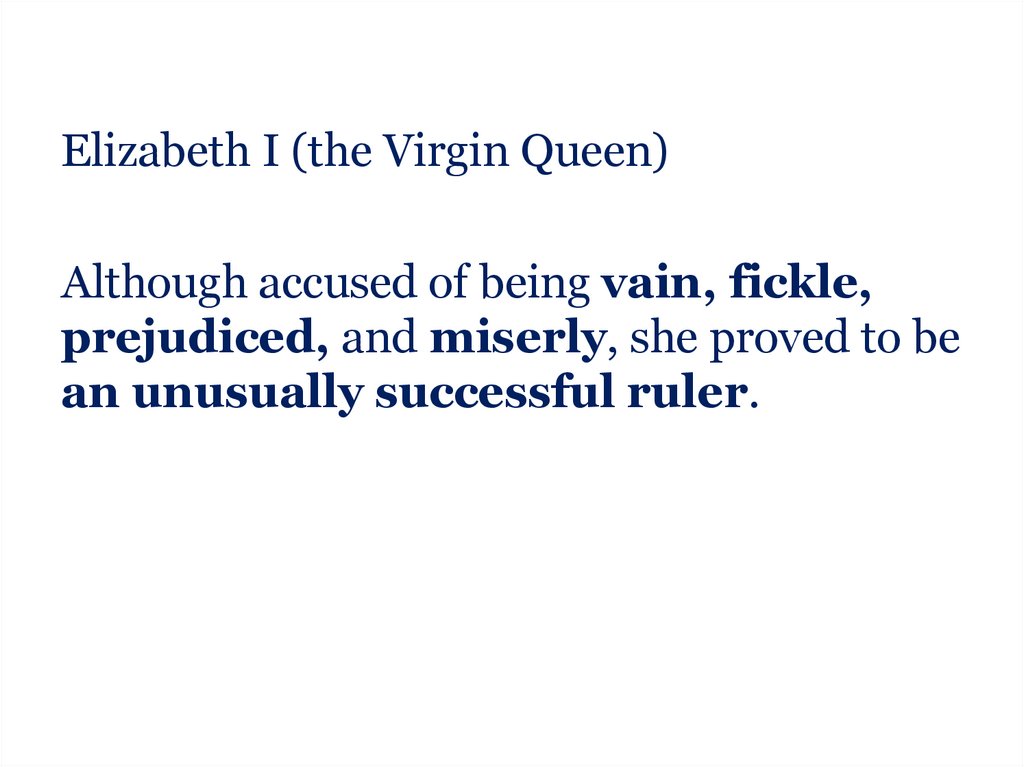
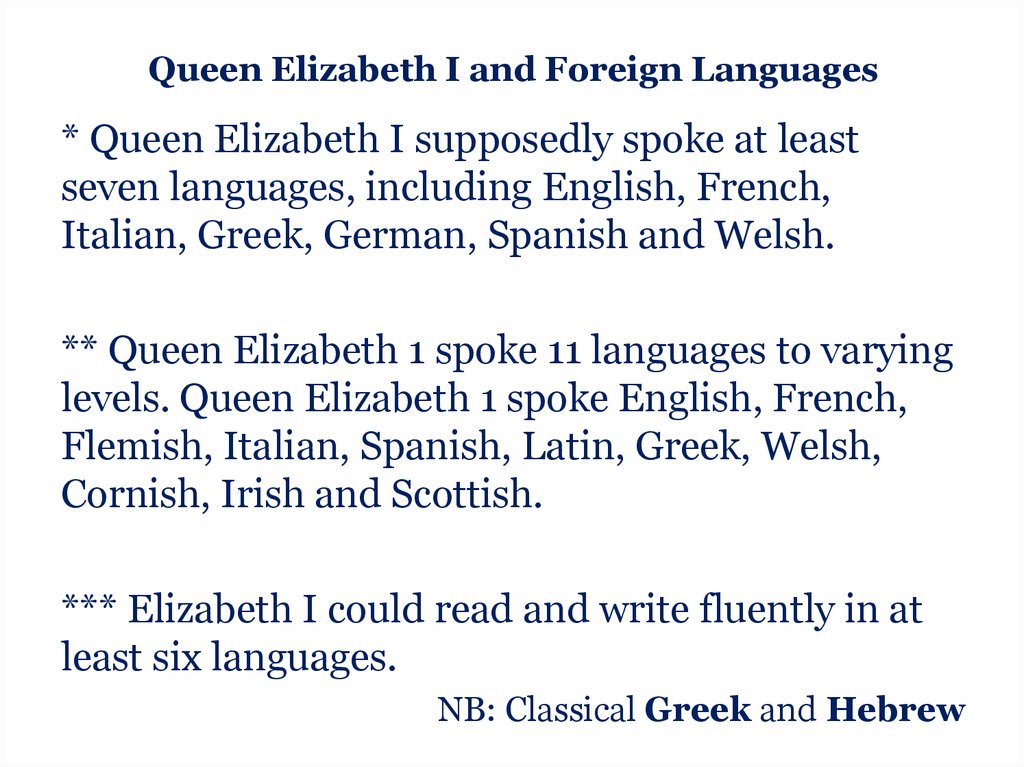
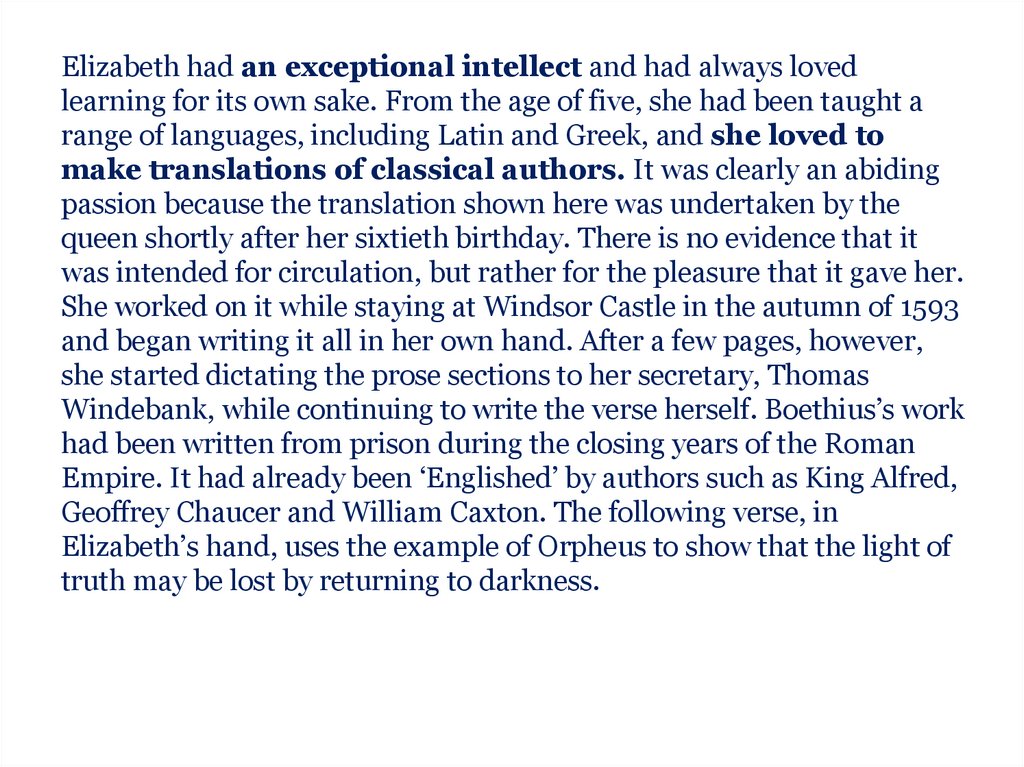
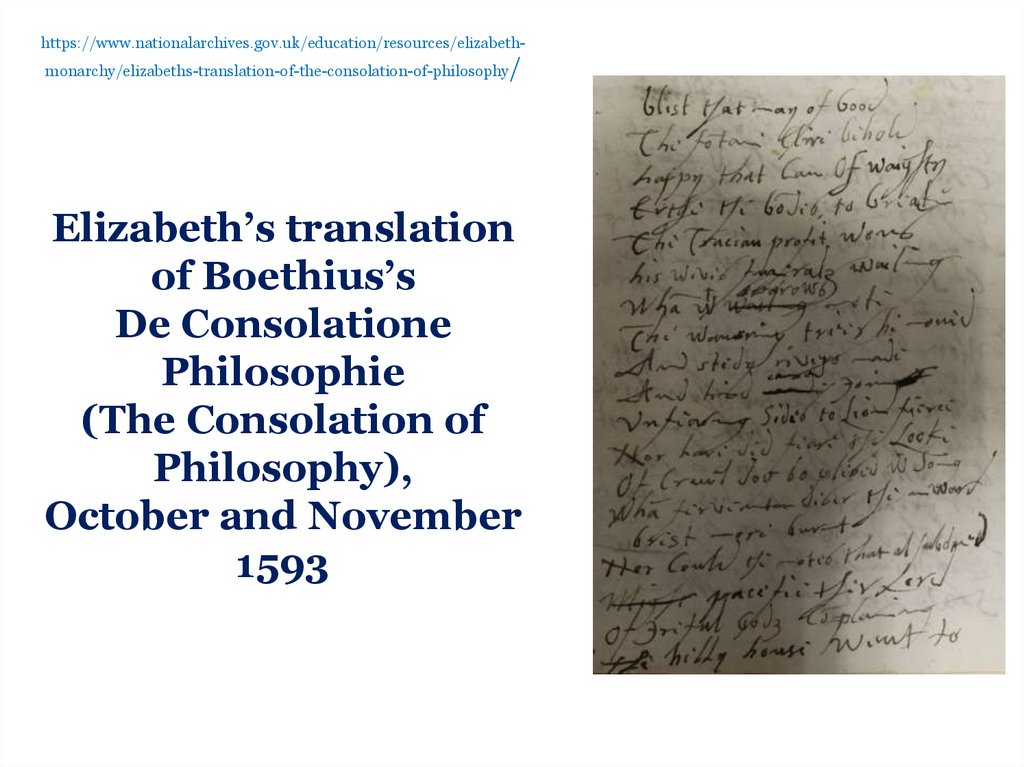

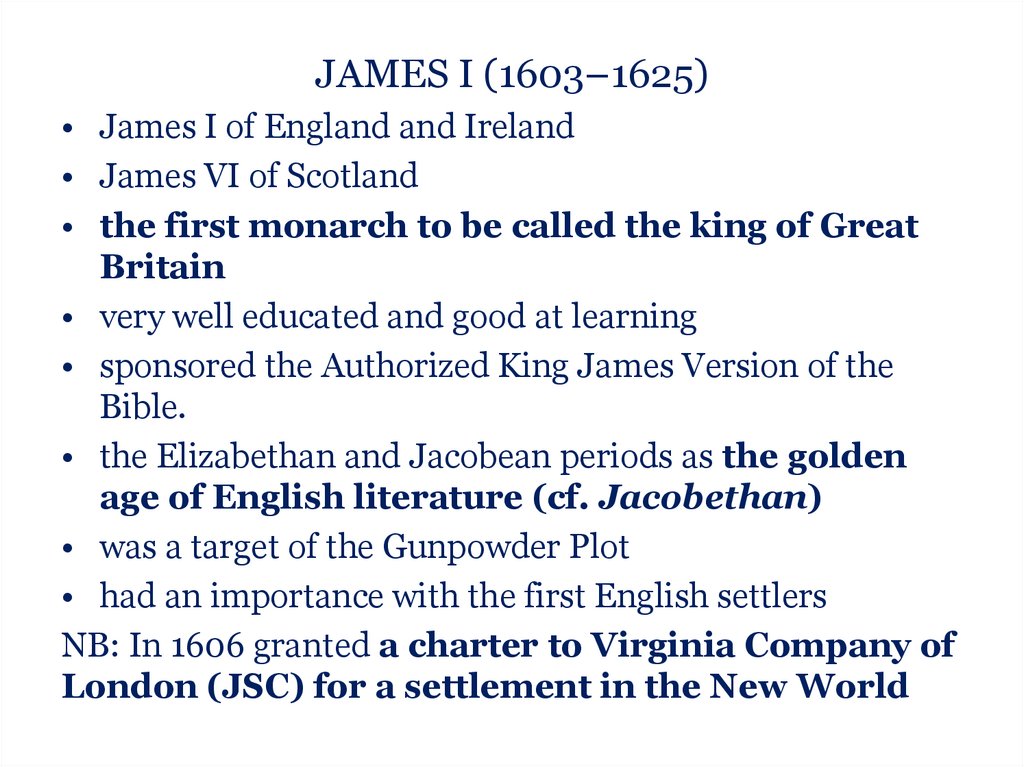
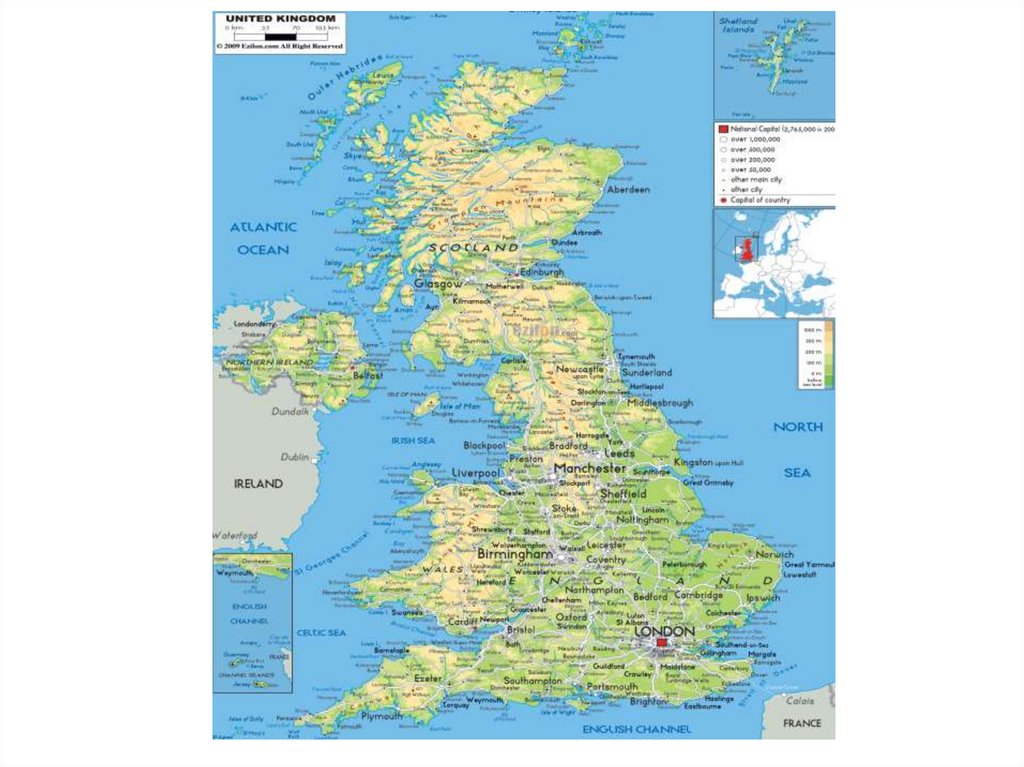

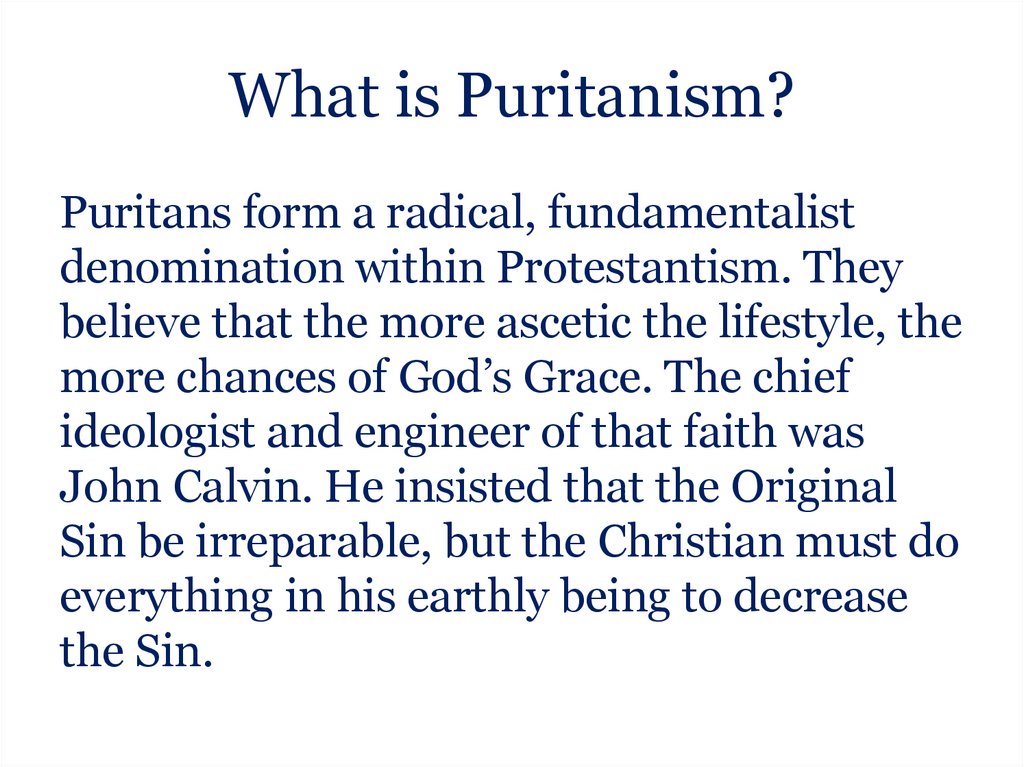
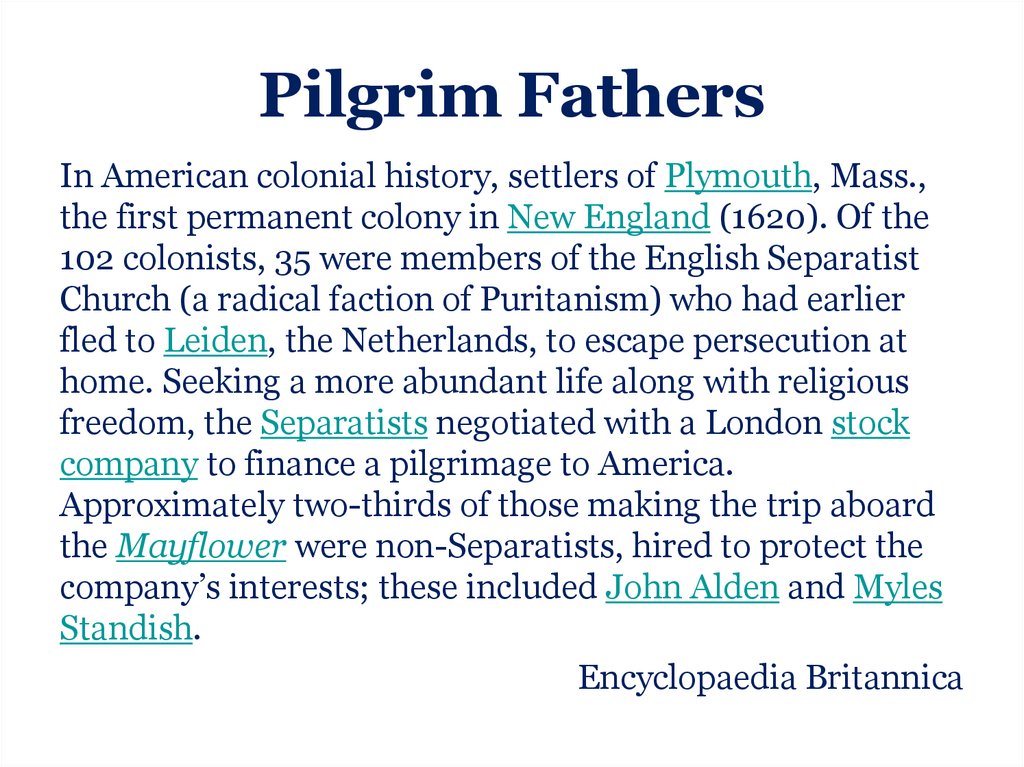

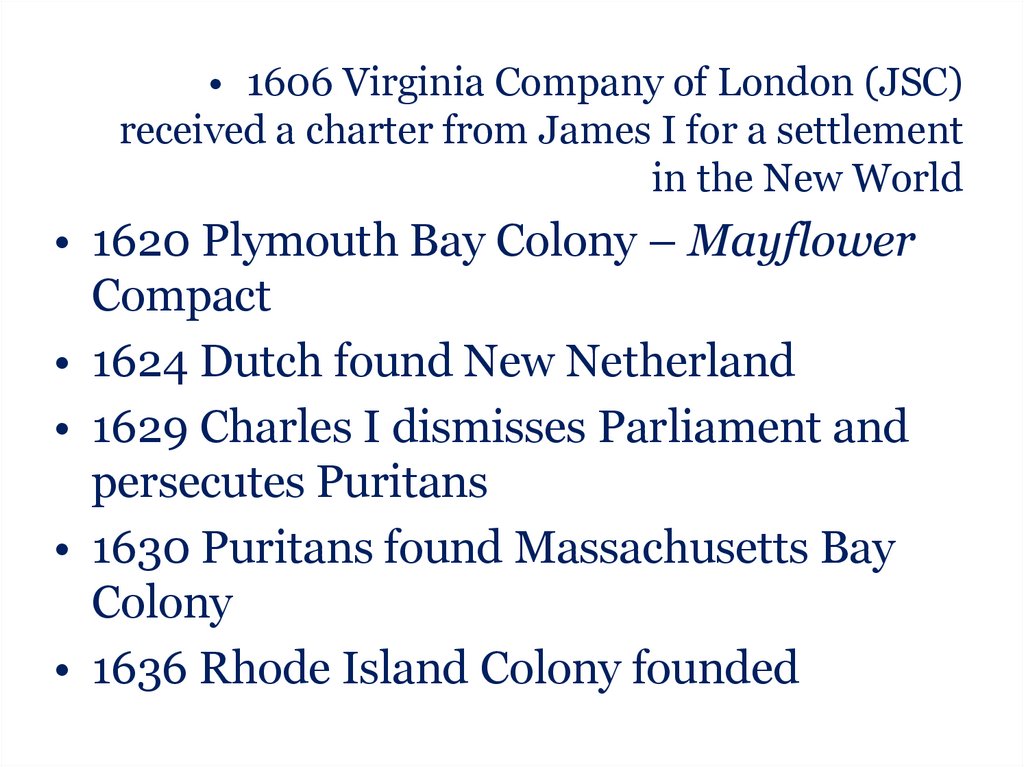
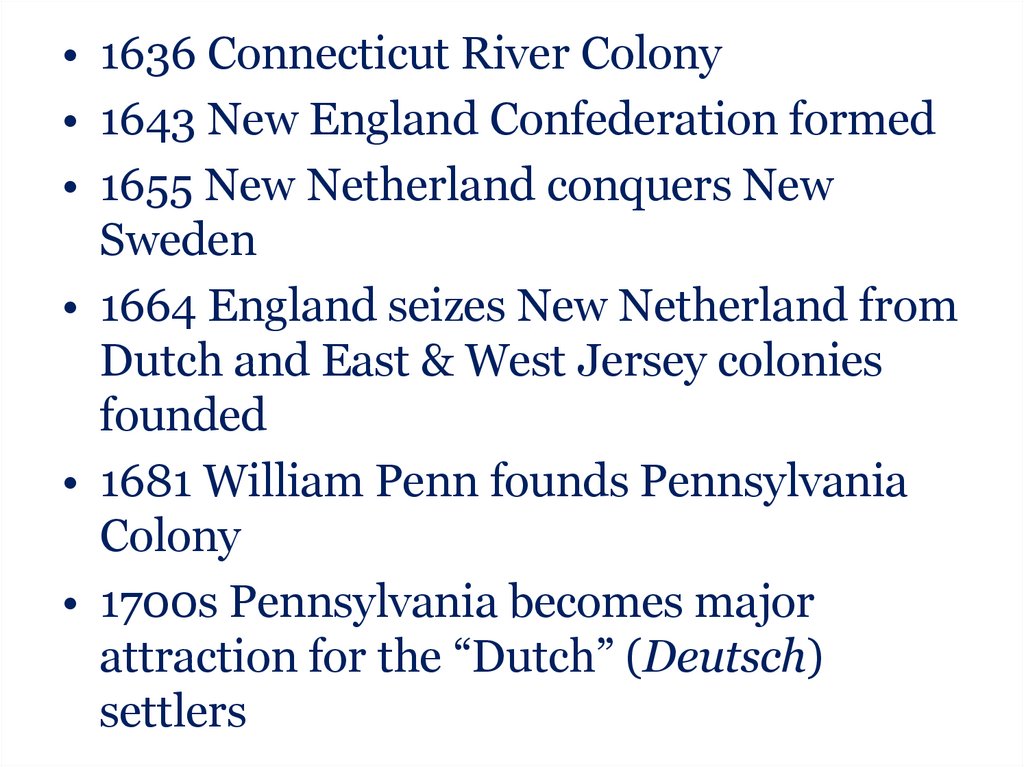

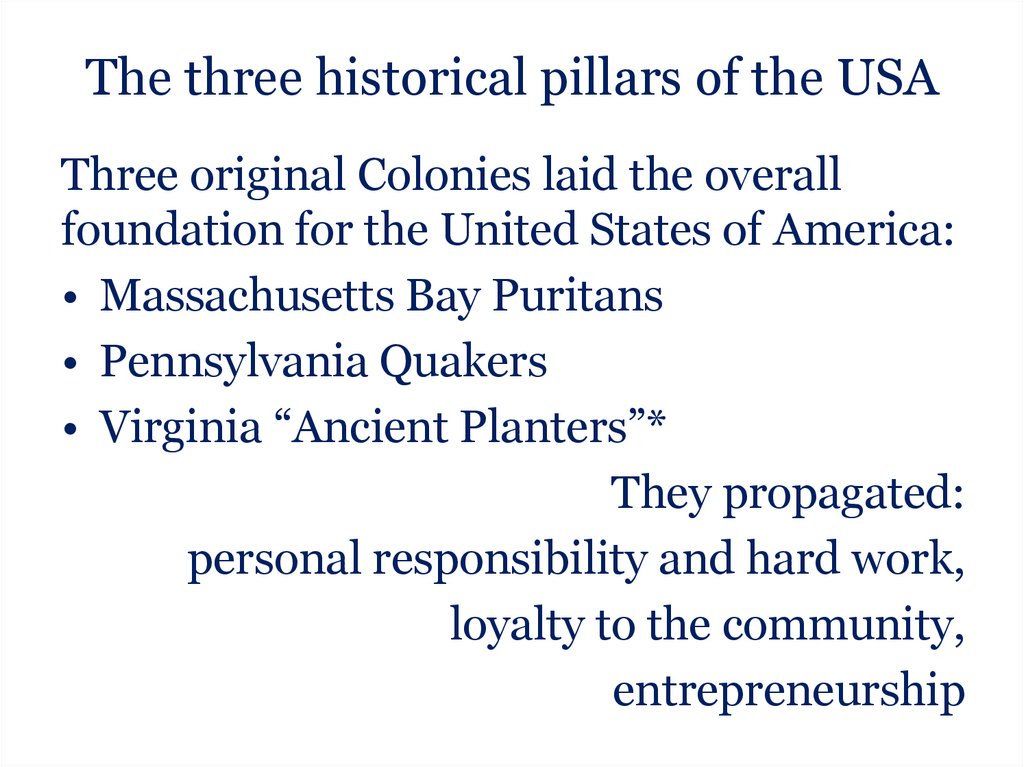
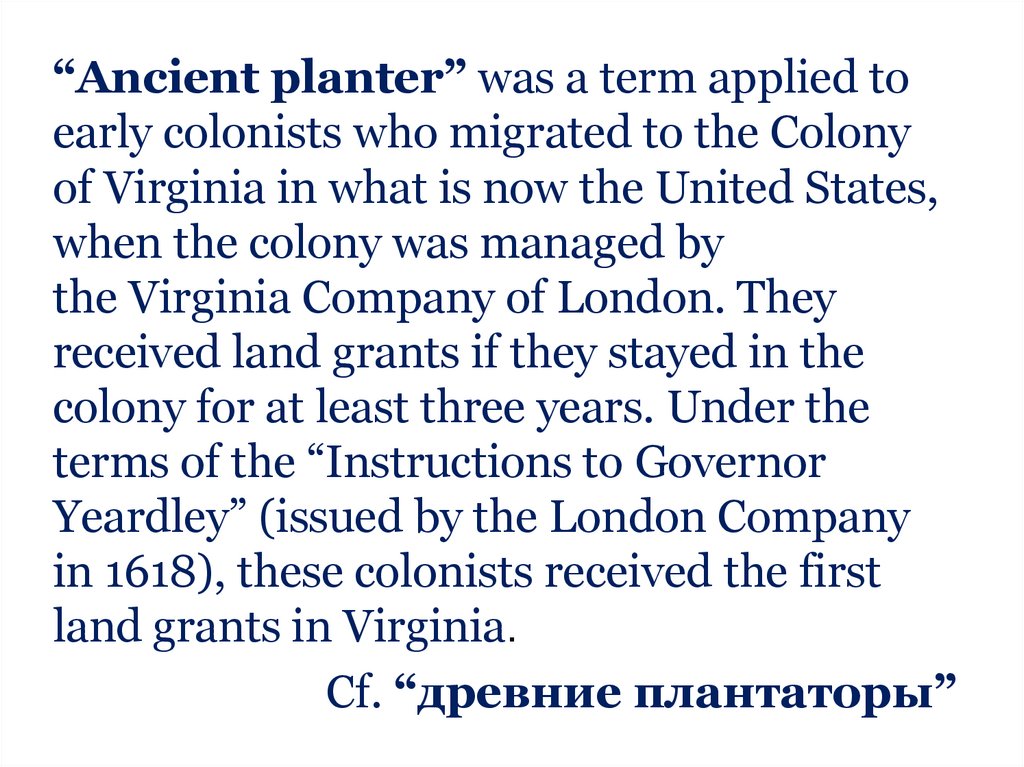
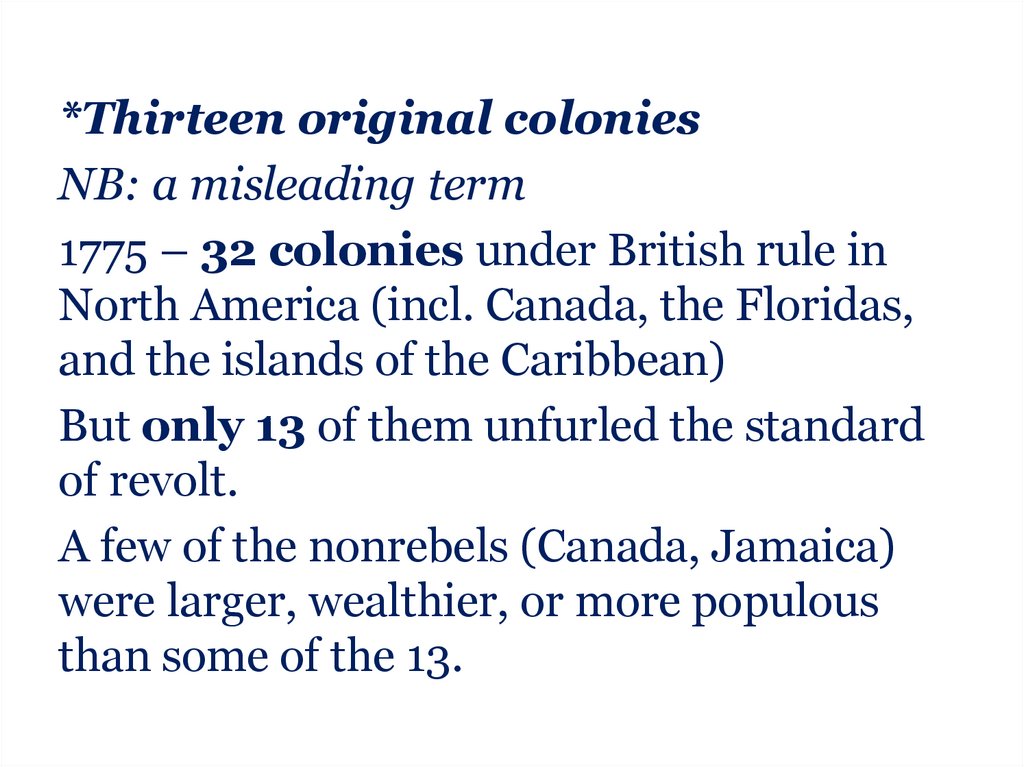

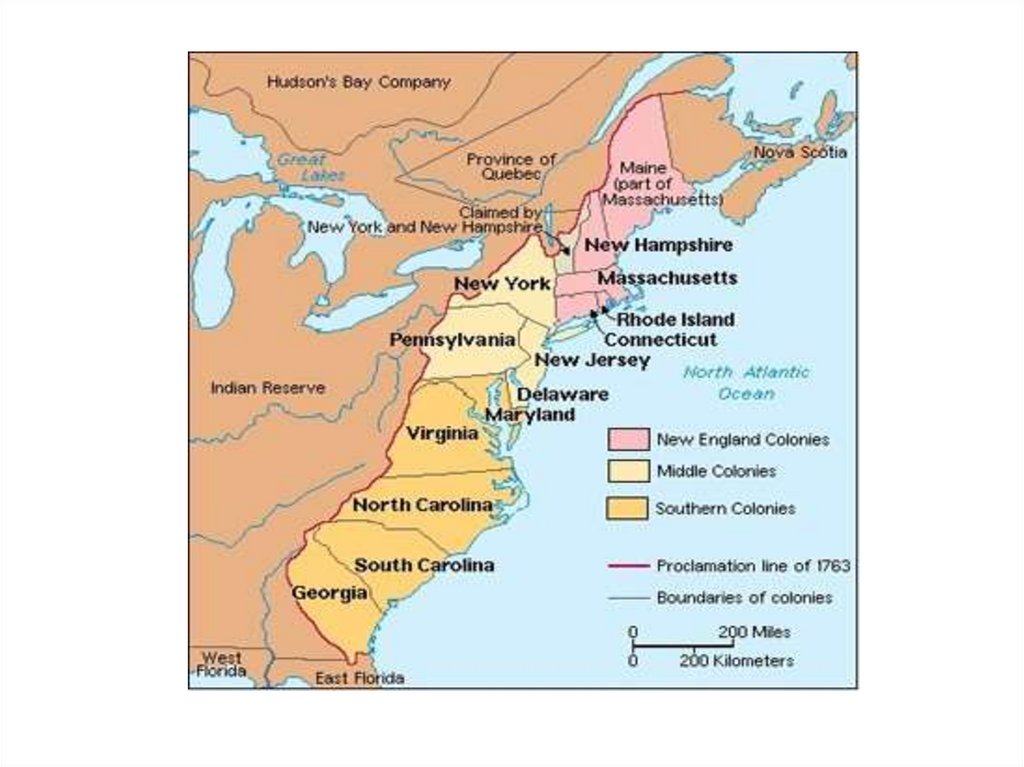
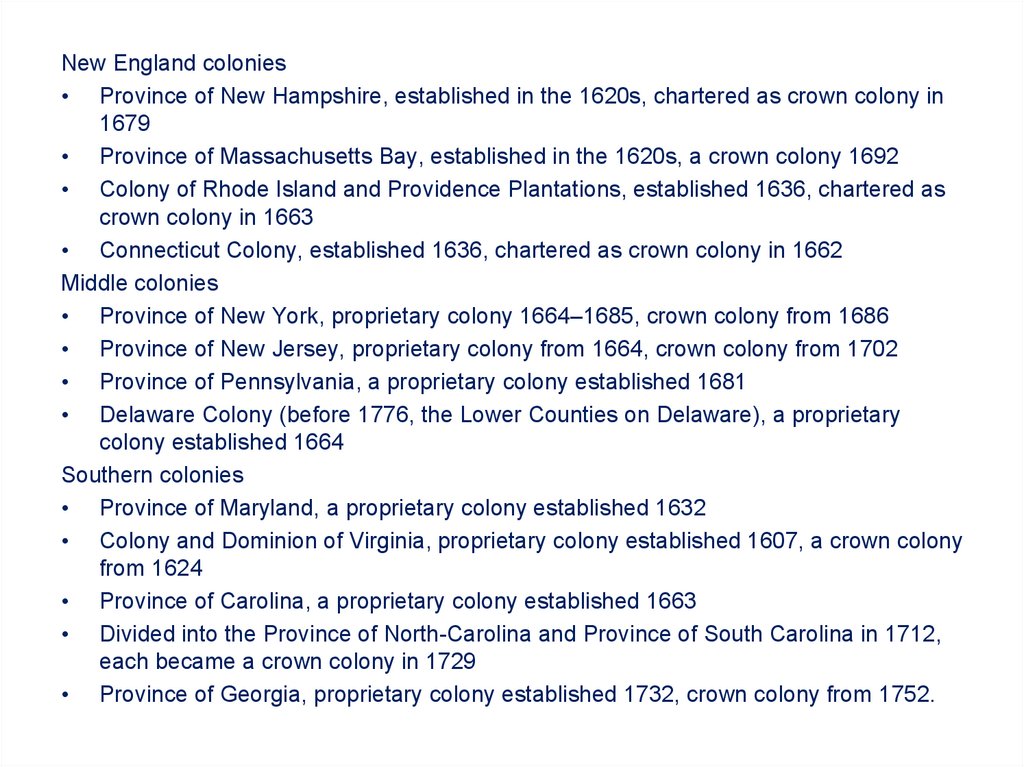
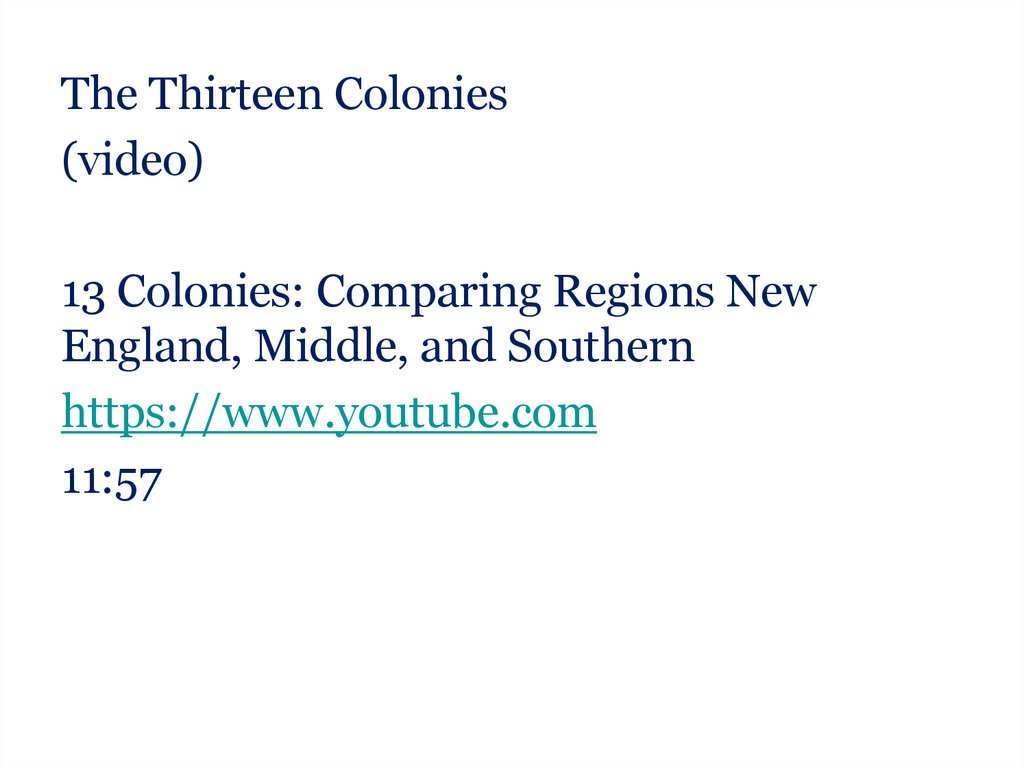
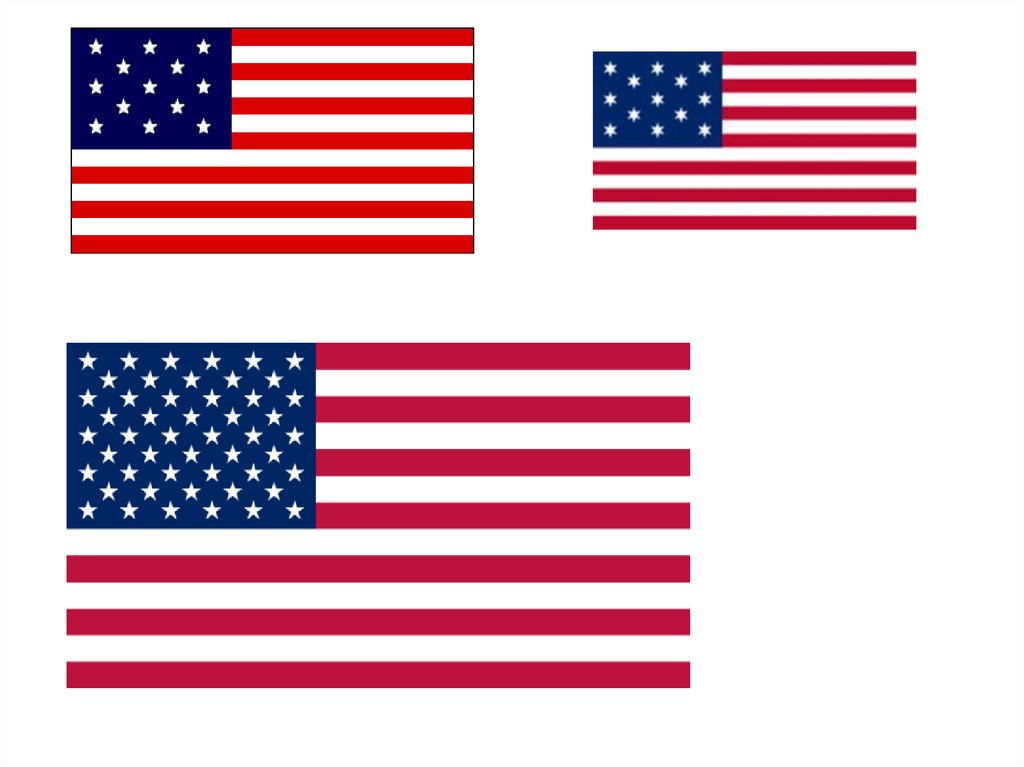
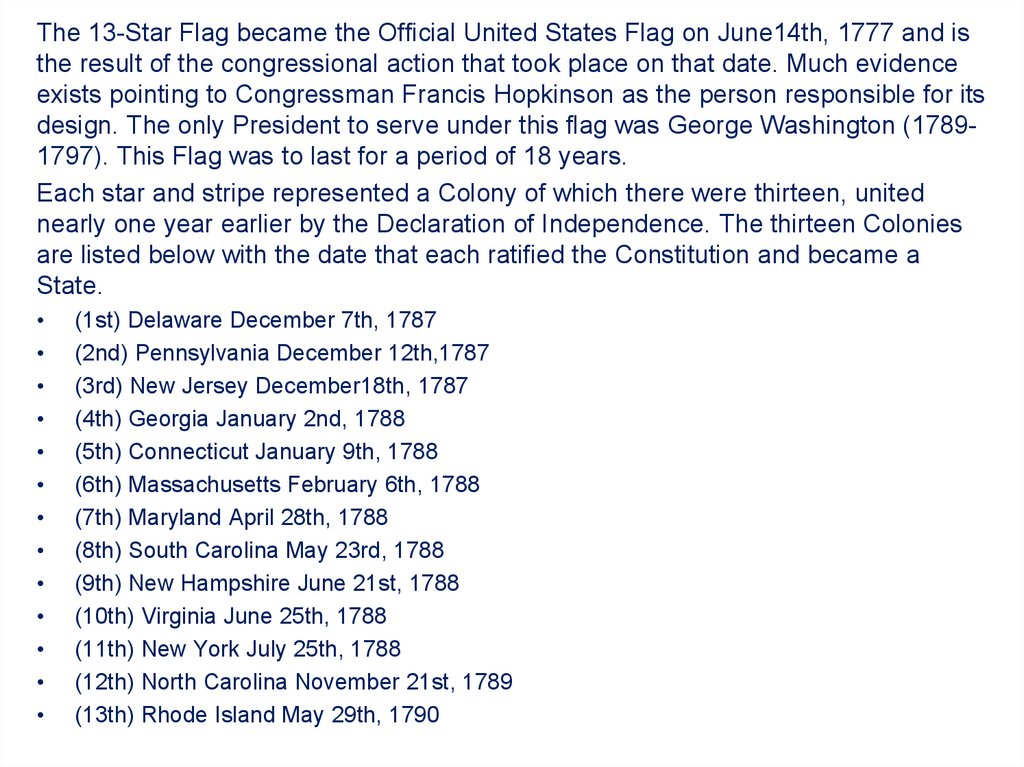
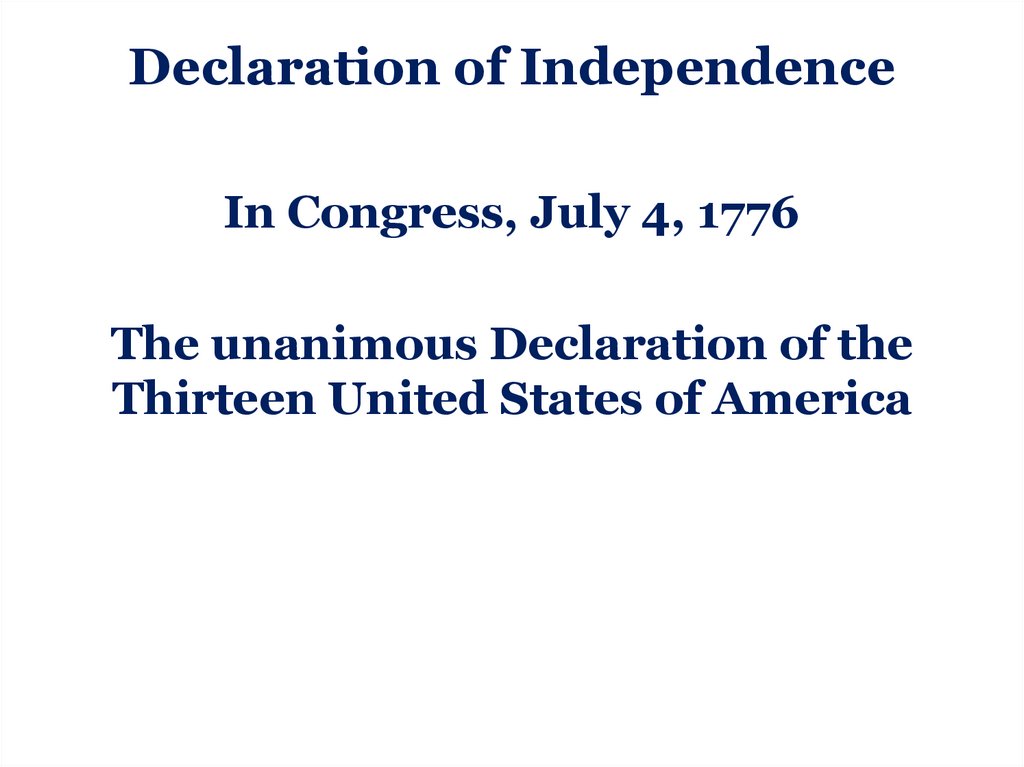
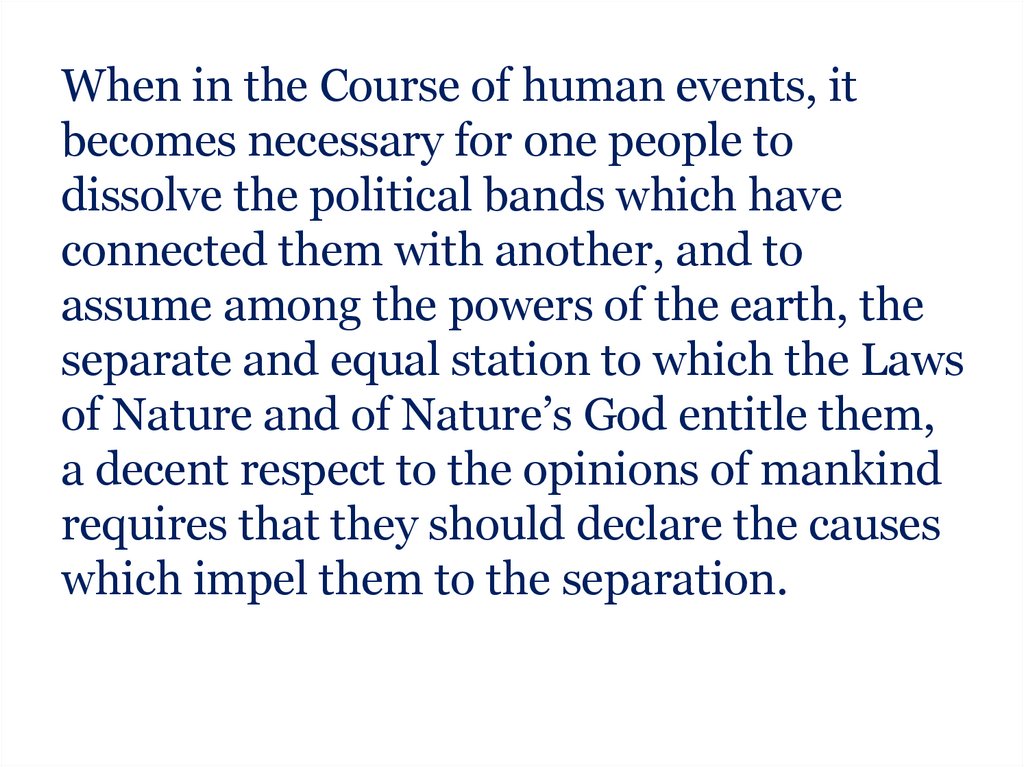
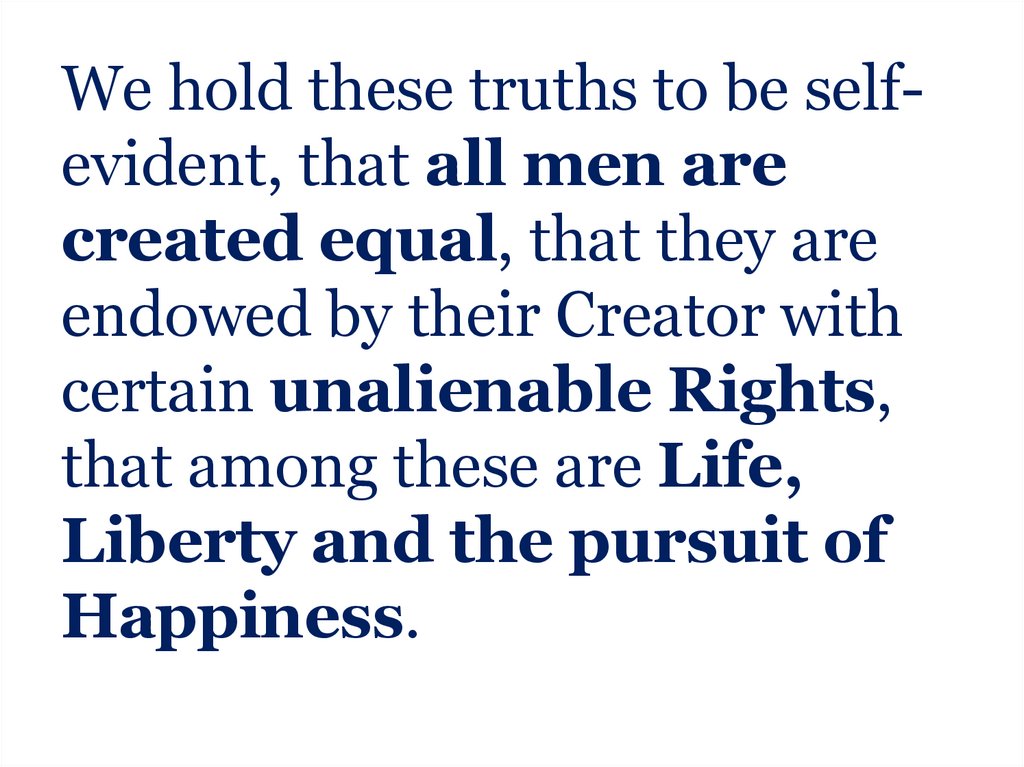
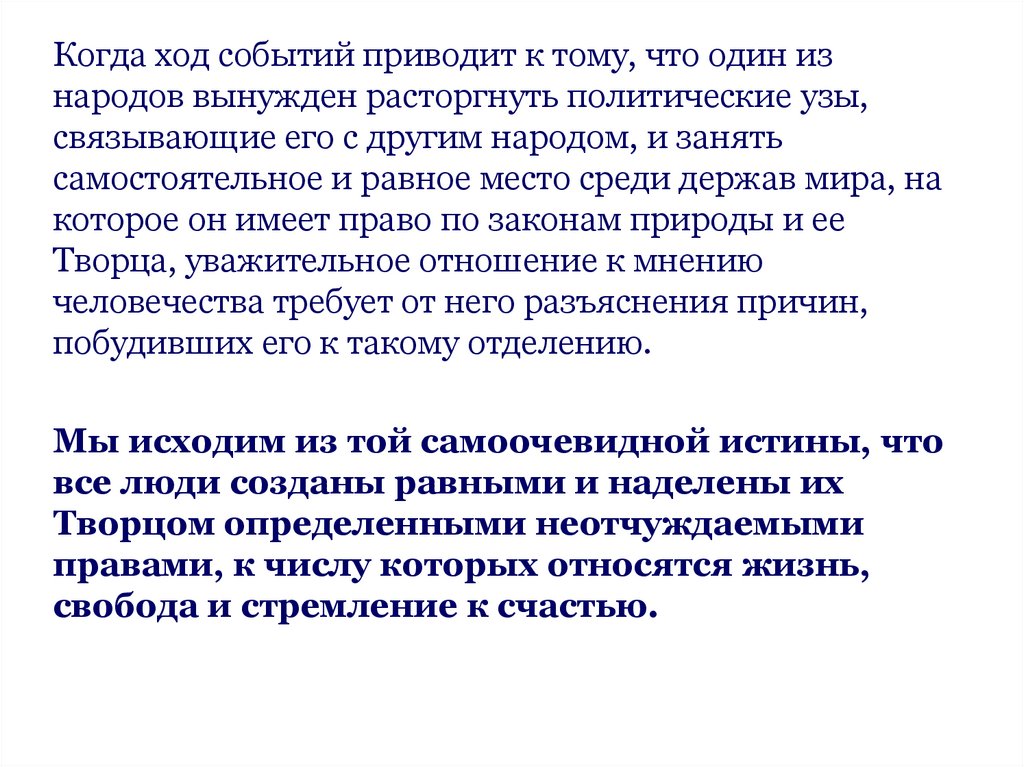
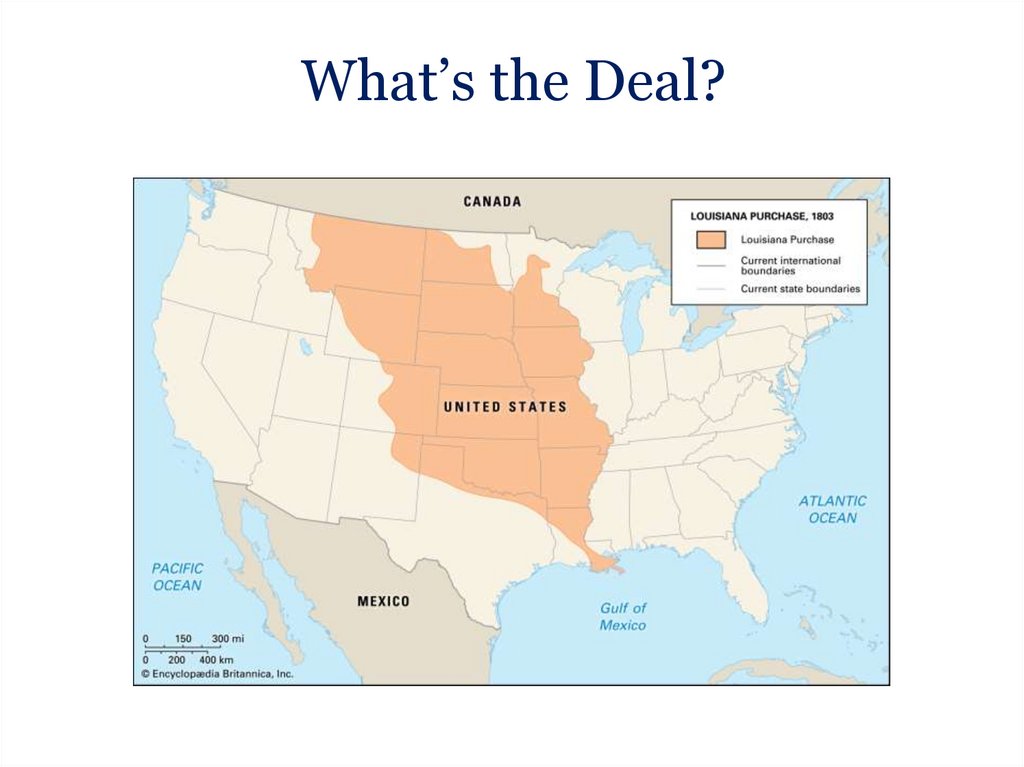
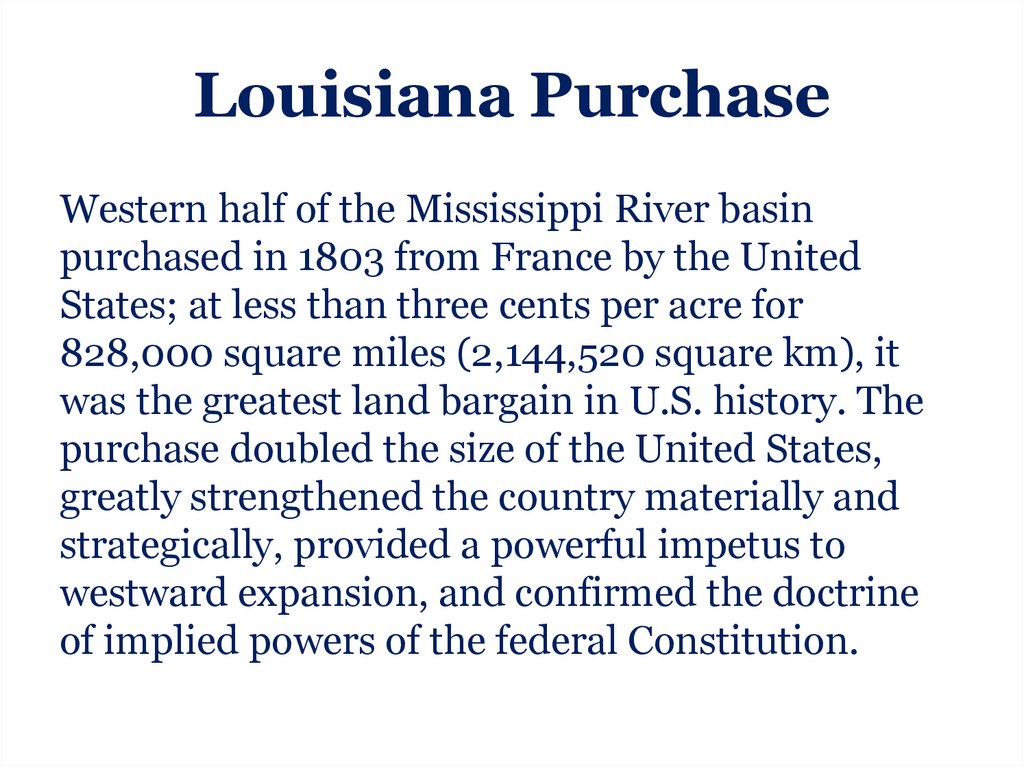
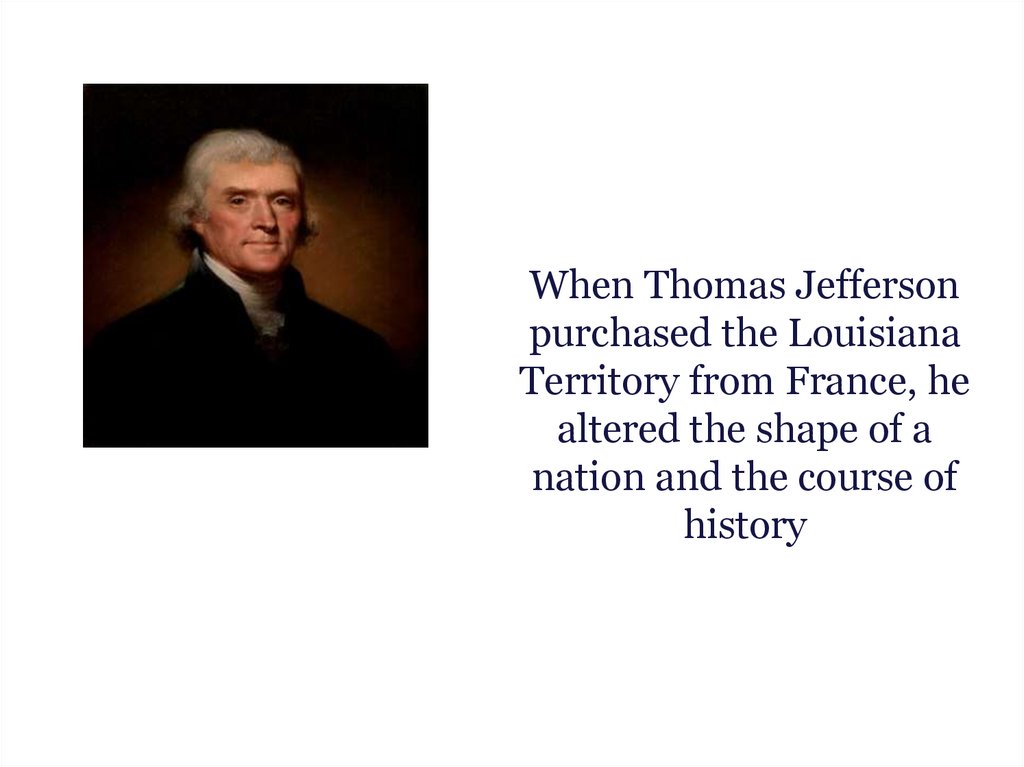
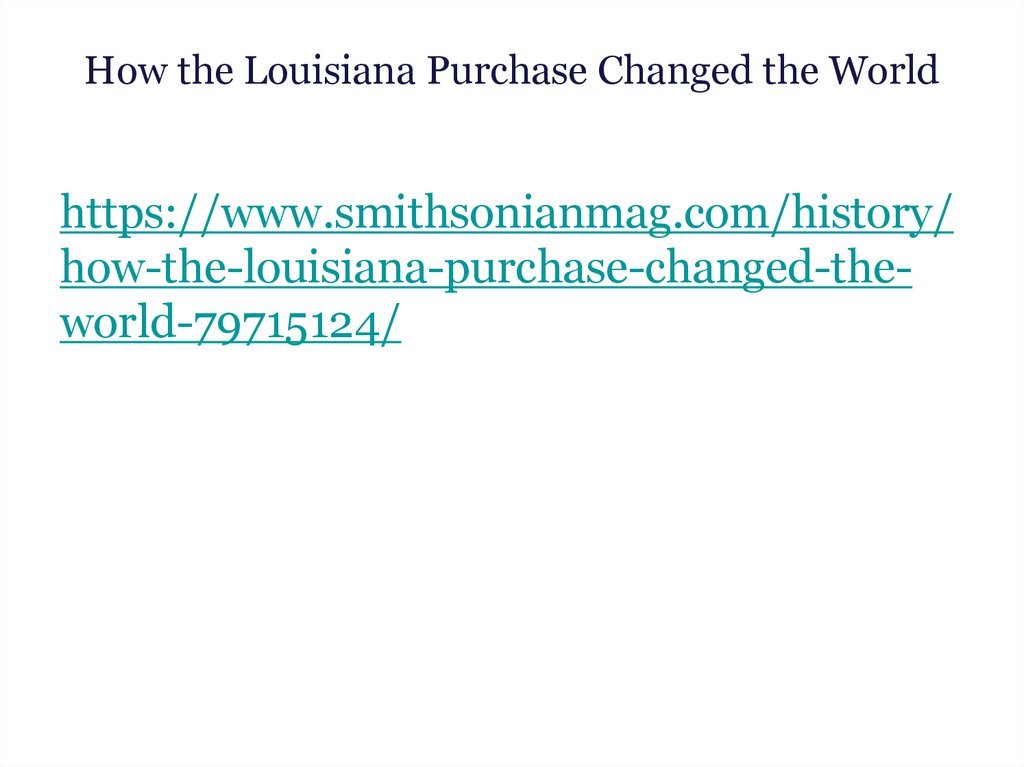

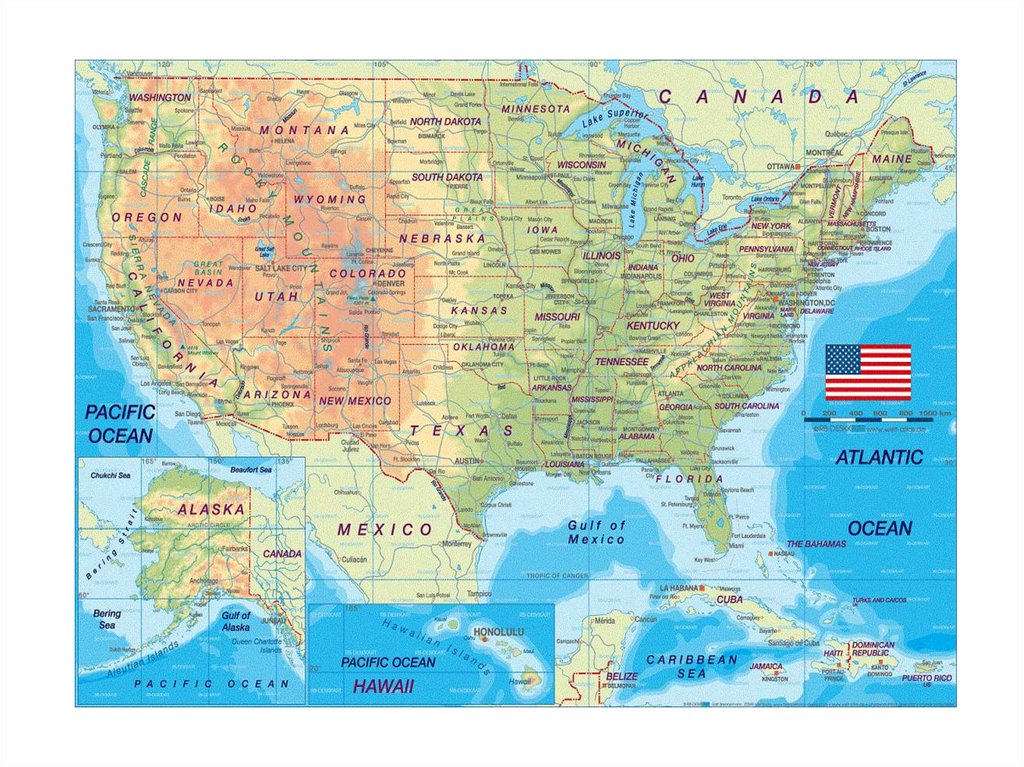
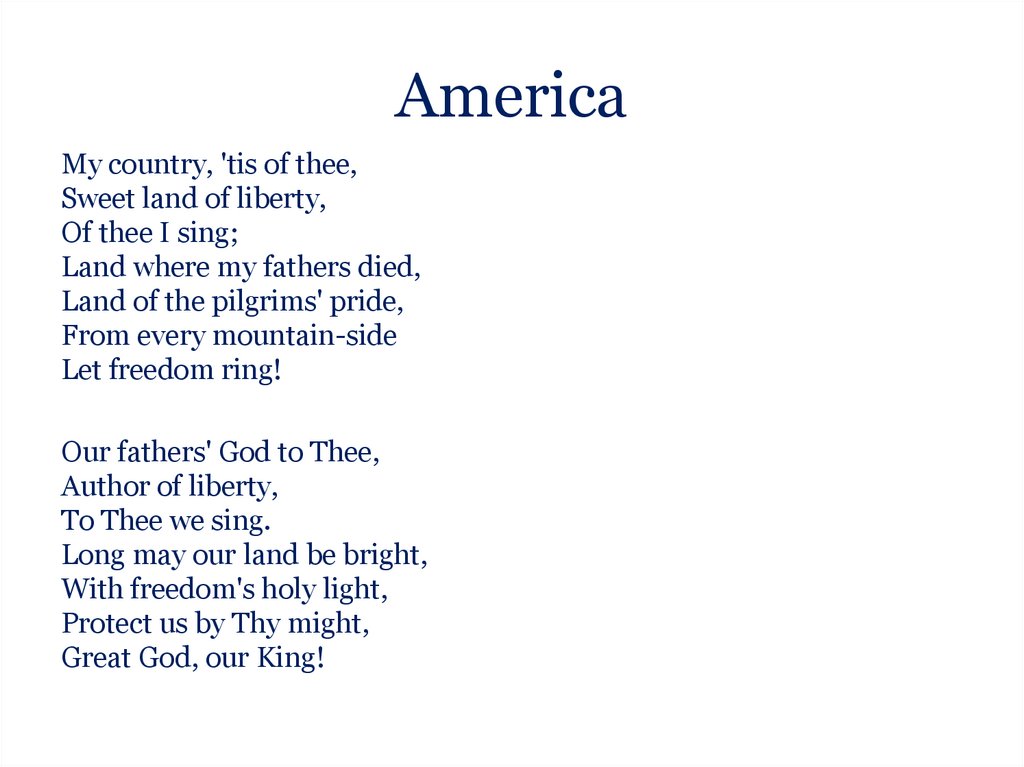
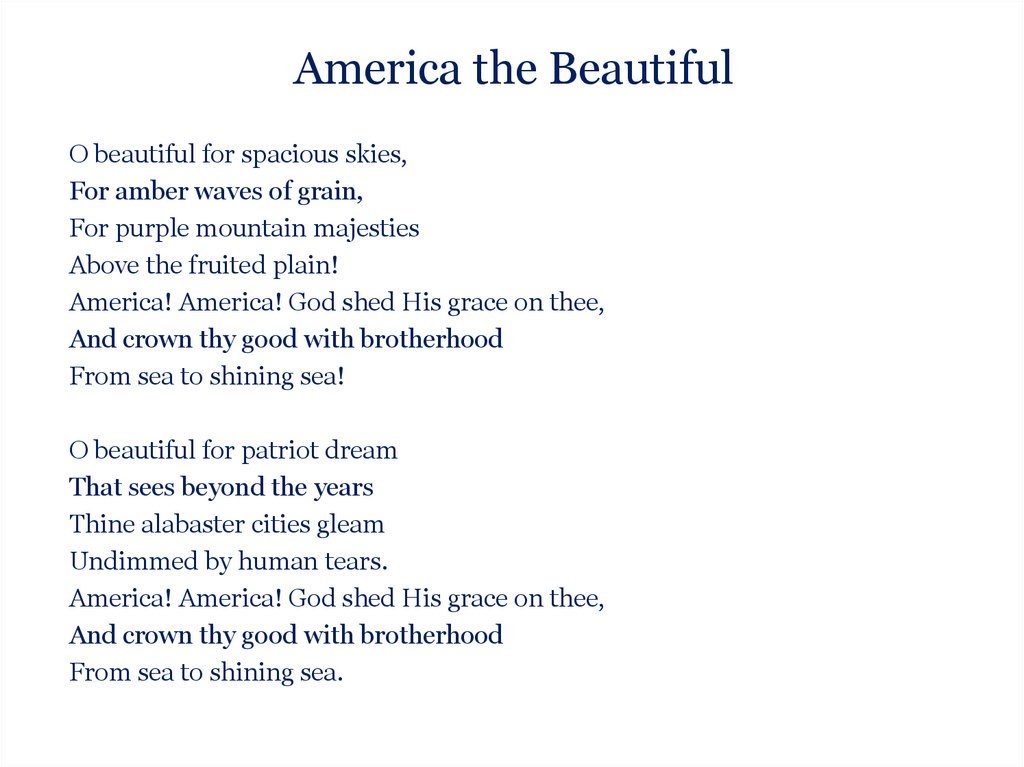

 Образование
Образование








